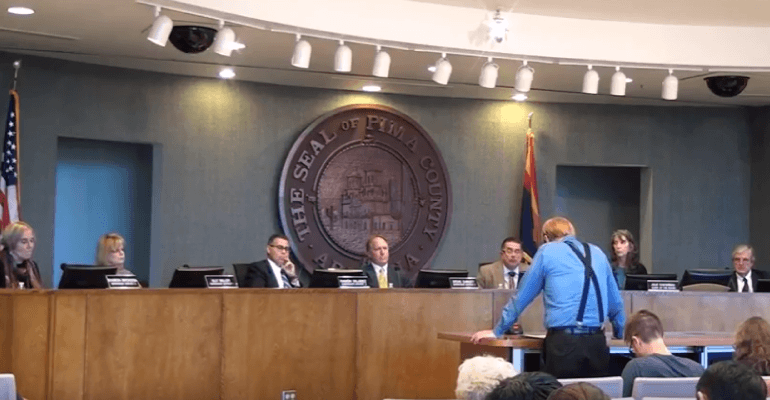
In September 2018, the annual Annenberg Constitution Day Civics Survey found that Americans are familiar with issues that are in the news such as constitutional provisions involving impeachment and pardons. Yet only 32 percent of Americans were able to correctly name all three branches of government.
Based on a review of social media rants, it appears even fewer people understand the structure of state and local government. This lack of understanding leaves people blaming bureaucrats rather than the politicians who direct them.
Let’s get it straight
School district board members are elected officials; the administrators they hire are not. Members of the counties’ boards of supervisors, city and town council members are elected; the managers they hire are not.
Administrators and managers serve at the pleasure of your elected representatives. If the administrators and managers are not serving the interests of the public, it is because your elected officials are not requiring them to do so.
If you don’t like what is happening in your schools, counties, cities, and towns, don’t blame the bureaucrats; hold your politicians responsible.
According to the Social Security Administration, “a political subdivision is a separate legal entity of a State which usually has specific governmental functions. The term ordinarily includes a county, city, town, village, or school district, and, in many States, a sanitation, utility, reclamation, drainage, flood control, or similar district.”
Political subdivisions are governed by boards. The boards are comprised of elected or appointed members. Those members are responsible for setting policy and hiring a manager to implement those policies.
In too many instances, from school board to county board of supervisors, the elected representatives are merely rubber stamps for managers.
The Arizona Clean Elections Commission offers great overviews of each body politic:
County Board Of Supervisors:
The County Board of Supervisors is similar to that of the City Council, except its jurisdiction includes all the county and unincorporated areas.
The County Board of Supervisors members set the county tax rate and approve the county budget.
The County Board of Supervisors provide guidance to the County Administrator and various county departments.
The County Board of Supervisors oversees municipal services such as health, road, parks, and libraries.
The County Board of Supervisors also has the authority to fill vacancies in county and legislative offices, other boards and commissions.
The County Board of Supervisors pass resolutions and enact ordinances and regulations as authorized by state law.
The County Board of Supervisors has authority to decide other issues, as well, such as zoning changes, resolutions and ordinances.
The County Board of Supervisors are elected to four-year terms.
City Or Town Councils:
The City or Town Council is an elected, local policy- and law-making body with the power to pass city/town laws and ordinances.
The City or Town Council is an elected, local policy- and law-making body with the power to pass city/town laws and ordinances.
The City or Town Council’s regular meetings, which are open to the public, the Council hears requests and grievances of local citizens, as well as receives updates from city staff on projects and initiatives.
The Council can call a special election to present bond issues to local residents.
There are 91 incorporated municipal governments (cities and towns) in Arizona.
The term of office is for four years.
The Arizonans United For Sound School District offers great overview of school governance:
School Boards:
The governing board is responsible for setting the mission for the district and the policies that will serve the mission. Board policies and goals establish the structure and create the environment for ensuring that all students are served.
The superintendent is supposed to use the policies established by the board to manage operations on a day-to-day basis. Although the superintendent may suggest changes to policies, only the board as a whole has the legal authority to adopt policy.
School boards are supposed to ensure accountability to the public. They are tasked with ensuring that the resources are used wisely and that high standards for academic performance are set. The board as a whole must monitor performance to meet established goals – academic, financial and operational.
Specific duties of school boards may relate to employment, purchasing, budget preparation, students and policies. They may include:
● Hiring and evaluating the district superintendent.
● Providing guidance in the development of the budget to ensure funding needed to meet board established goals.
● Setting the local property tax rate that funds the district.
● Approving the budget.
● Monitoring the budget.
● Setting salaries for employees.
● Approving purchases.
● Establishing and approving policies.
● Approving curriculum materials.
● Adopting the school calendar.
● Reviewing regulations for compliance with policy.
● Approving personnel actions based on the superintendent’s recommendation.
● Closing or constructing schools.
